Gubbio is a medieval town, also known as the "town of stones", which is full of traditions, a long history and, not least, beauty.
Content in this i denne article
Gubbio in 20 seconds
Gubbio is a medieval town, also known as the “town of stones”, which is full of traditions, a long history and, not least, beauty.
The town is in the northern part of Umbria, just around an hour’s drive north of the region’s capital, Perugia, from where there are good connections by bus.
Gubbio is located in Umbria
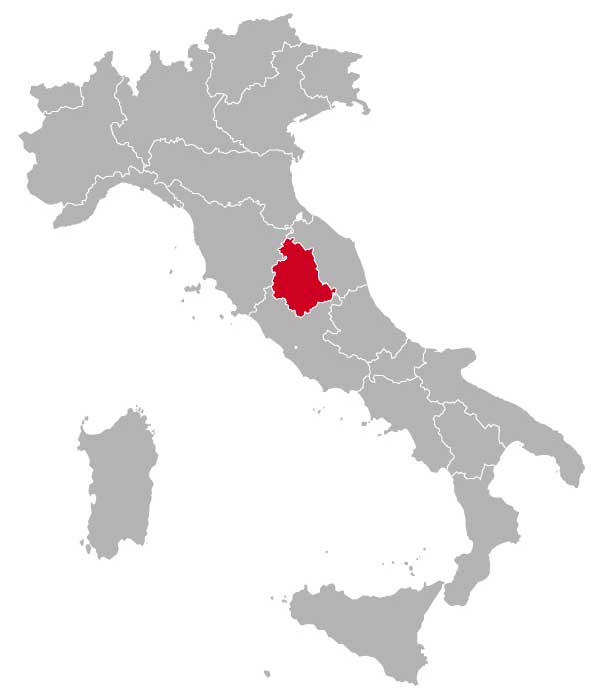
Holiday in Gubbio
The nearest airport is in Perugia, which is a 45-minute drive from Gubbio. However, it is a small airport, so you will probably fly to and land in either Rome or Florence.
There is a direct bus connection between Perugia and Gubbio.
The journey by bus will take approximately one hour and 15 minutes and has several stops in Gubbio, so make sure you get off at the right bus stop.
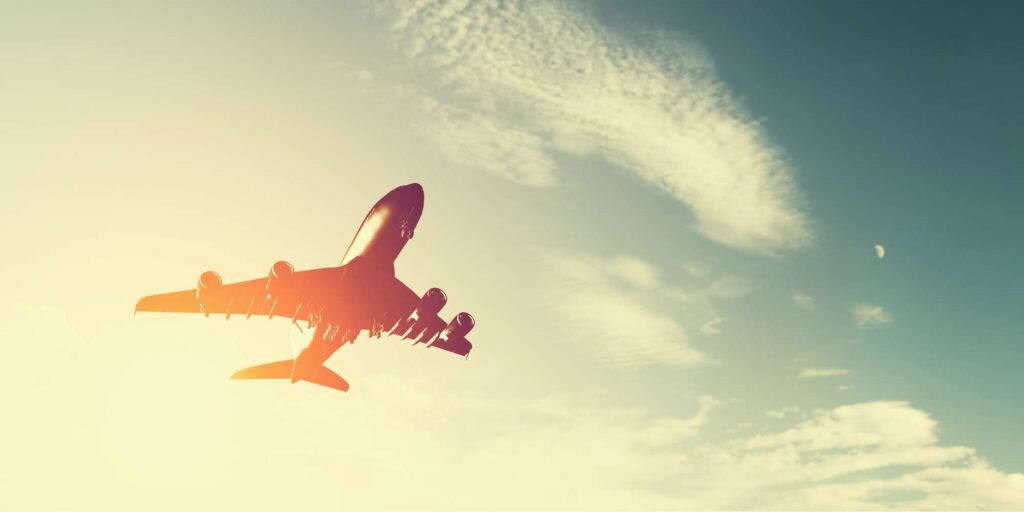
We have a partnership with Trenitalia that makes it simple and easy for you to buy your train ticket online.
All you have to do is buy the ticket, get on the train and present the ticket with the QR code to the train conductor.
There is no train station in Gubbio. The nearest station is in Fossato di Vico, which is a 40-minute drive from Gubbio.
The railway station in Fossato di Vico connects Rome and Ancona. For useful information, if you are elsewhere in Umbria than in Perugia, you can get on the train in e.g., Assisi or Spello, and from there take the trip to Gubbio.
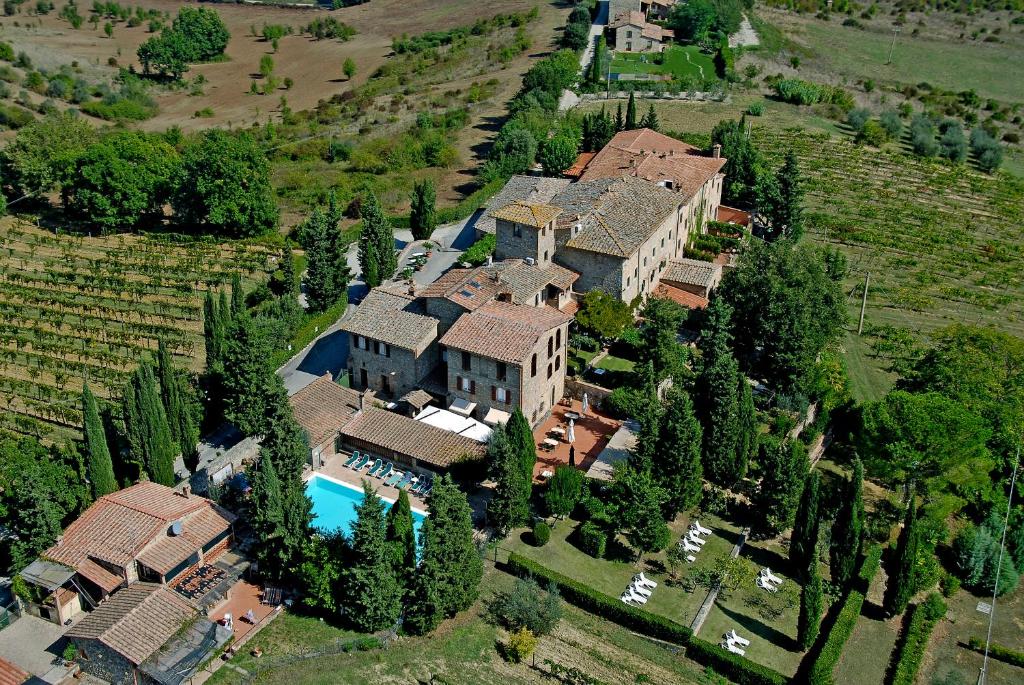
Booking.com has an amazing variety of stunning hotels in Gubbio
We recommend early booking if your aim os to secure a great hotel for your holiday.
Booking.com is our choice when it comes to choosing and booking your stay in Italy. It’s super easy and it comes with some great advantages
The town is built on the slopes of Monte Ignio. Gubbio is truly a magnificent medieval town, and the Middle Ages have really left their mark on the town.
Visitors who have come here, and continue to come, have always been fascinated by the magnificent buildings whose history spans far and wide.
When you arrive by bus, this old amphitheater is the first thing you come to. This Roman theater has stood here since the 1st century BC. It was built between 55 and 27 BC. and could accommodate more than 6,000 spectators in the dawn of time.
Today, some of the lower and some of the upper arches are still preserved.
There have been several different restorations in progress since the 15th century and this has brought several mosaics to light.
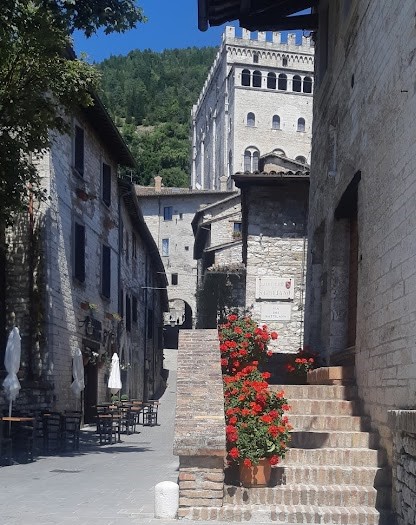
From this amazing square, you get the most breathtaking view of the hills of Umbria, and when you read about the region, which tells you that it is the green heart of Italy, you will understand why.
On the square you can, among other things, see Palazzo dei Consoli, built in the Gothic style and considered one of the most impressive buildings publicly owned in Italy.
Inside, the building houses the Civic Museum, the building has 5 floors, and the museum is therefore divided into five different departments, which includes a collection from the Risorgimento (The Unification of Italy).
On the opposite side of the same square, you can see the unfinished Palazzo del Podesta. The construction began in 1349 and continued until the 17th century, when it stopped. Nobody has done anything about it since.
See it! It’s worth it.
Designed by Federico di Giorgio Martini at the behest of Federico da Montefeltro.
The building was built in 1470 in Renaissance style on top of already existing medieval buildings.
The building is divided into two, with one side facing the mountain and the other side facing the valley. In the central part there is an artistic courtyard.

It took 156 years to build this cathedral, dedicated to Saints Mariano and Giacomo in the 13th or 14th century.
The interior has been restored at the beginning of the 20th century.
The town’s biggest party takes place on 15 May. It has gradually become so important, not just for the city, but for the entire region, that the festival has represented Umbria since 1973.
The Festa dei Ceri is the transport of 3 tall statues which are carried through the streets of the town. The ceremony starts atmospherically from the Piazza Grande around noon.
If you’re in Umbria around this time, make sure you’re in Gubbio on May 15th.
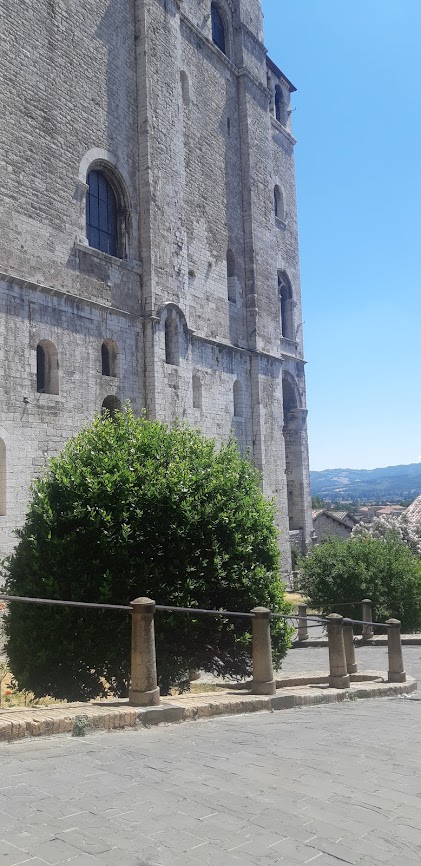
I was on holiday in Umbria one summer and it was, unsurprisingly, very hot. I don’t know how hot it actually was, but inside these narrow streets, there is a good chance of the temperature getting above 40 degrees at the end of July.
So with the heat, for me food is not my first priority, but something to drink. That’s probably how it is for most people.
But wtih th cold coke I got a delicious little sandwich with local cold cuts from Umbria.

Contact us
E-mail:
info@rejsertilitalien.dk
Italiavia
At Italiavia we take pride in presenting and informing about our knowledge of Italy. Our love to this amazing country has no limits.